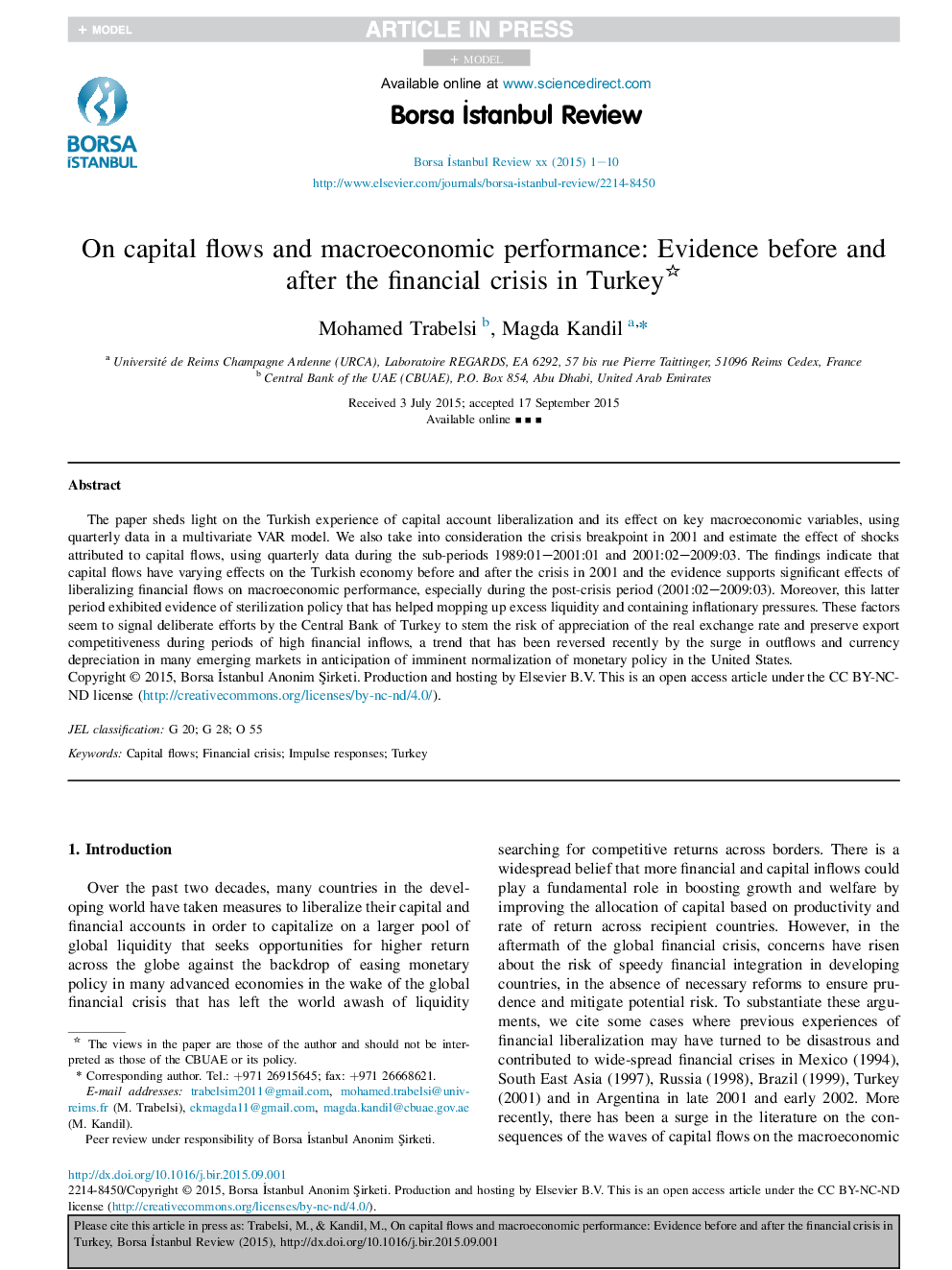| Article ID | Journal | Published Year | Pages | File Type |
|---|---|---|---|---|
| 7341934 | Borsa Istanbul Review | 2015 | 10 Pages |
Abstract
The paper sheds light on the Turkish experience of capital account liberalization and its effect on key macroeconomic variables, using quarterly data in a multivariate VAR model. We also take into consideration the crisis breakpoint in 2001 and estimate the effect of shocks attributed to capital flows, using quarterly data during the sub-periods 1989:01-2001:01 and 2001:02-2009:03. The findings indicate that capital flows have varying effects on the Turkish economy before and after the crisis in 2001 and the evidence supports significant effects of liberalizing financial flows on macroeconomic performance, especially during the post-crisis period (2001:02-2009:03). Moreover, this latter period exhibited evidence of sterilization policy that has helped mopping up excess liquidity and containing inflationary pressures. These factors seem to signal deliberate efforts by the Central Bank of Turkey to stem the risk of appreciation of the real exchange rate and preserve export competitiveness during periods of high financial inflows, a trend that has been reversed recently by the surge in outflows and currency depreciation in many emerging markets in anticipation of imminent normalization of monetary policy in the United States.
Related Topics
Social Sciences and Humanities
Economics, Econometrics and Finance
Economics and Econometrics
Authors
Magda Kandil, Mohamed Trabelsi,
